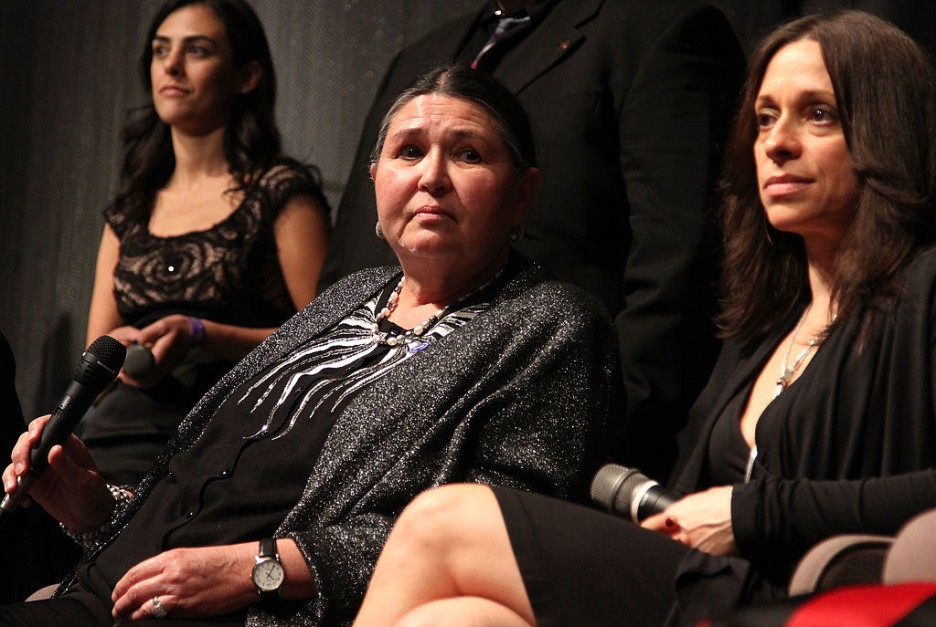Sacheen Littlefeather Receives Apology Letter for 1973 Academy Awards: 'It's Only Been 50 Years!'

The Academy of Motion Pictures Arts and Sciences sends an apology letter to Sacheen Littlefeather nearly 50 years after she stood on stage to speak about the depiction of Native Americans in Hollywood.
Actress and activist Sacheen Littlefeather appeared at the Academy Awards ceremony on behalf of Marlon Brando, who wanted to decline his Oscar as best actor for his "The Godfather" role in 1972. The protest was meant to address Hollywood's treatment of American Indians, but then-26-year-old Little feather had been on the receiving end of boos and shocked faces.
In Academy President David Rubin' letter, he had called Littlefeather's speech "a powerful statement that continues to remind us of the necessity of respect and the importance of human dignity."
"The abuse you endured because of this statement was unwarranted and unjustified," Rubin wrote. "The emotional burden you have lived through and the cost to your own career in our industry are irreparable. For too long the courage you showed has been unacknowledged. For this, we offer both our deepest apologies and our sincere admiration."
Now 75-year-old Little feather expressed that she found it "profoundly heartening" to see how much has changed since her protest nearly 50 years ago.
"Regarding the Academy's apology to me, we Indians are very patient people -- it's only been 50 years!" she said. "We need to keep our sense of humor about this at all times. It's our method of survival."
The Academy Museum of Motion Pictures announced that they will host a special program for Littlefeather where several Indigenous artists will be performing in an evening of "conversation, healing and celebration" this September 17th.
Why Did Marlon Brando Refuse The Oscar?
"The Godfather" actor Marlon Brando had refused to accept the award due to the issue at Wounded Knee in 1973, when members of the American Indian Movement occupied the South Dakota town but were met by resistance from federal law enforcement.
Littlefeather Stood Her Ground
Sacheen Littlefeather tells Academy Museum director Jacqueline Stewart in a podcast what she had stood for during her iconic moment in 1973.
As the president of the National Native American Affirmative Image Committee at that time, the activist had fought for the representation of all races.
"I felt that there should be Native people, Black people, Asian people, Chicano people - I felt there should be an inclusion of everyone," Littlefeather explained. "A rainbow of people that should be involved in creating their own image."
The actress mentioned how she was "silenced" after the ceremony and struggled to find work in the film industry. She dedicated most of her time to activism and helping Indigenous actors find performing arts organizations.
"I knew I had done the right thing," she told A. Frame.
Despite the backlash she received from some in Hollywood, Littlefeather said that she also received praise and support from renowned advocates like Coretta Scott King and Cesar Chavez.





